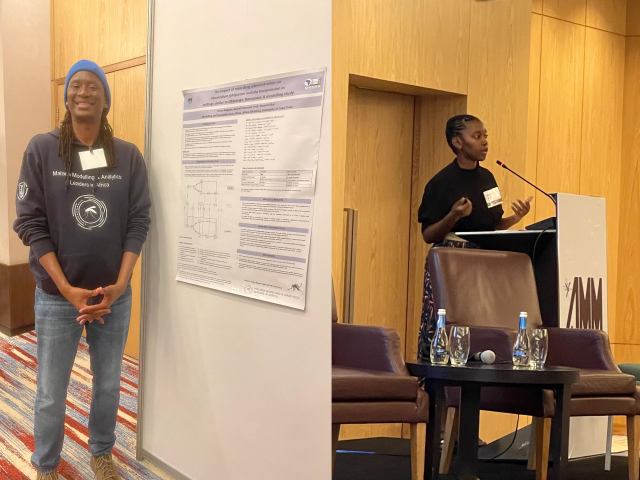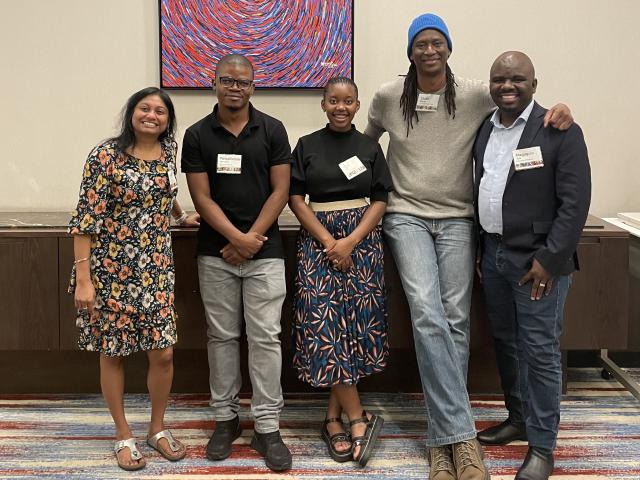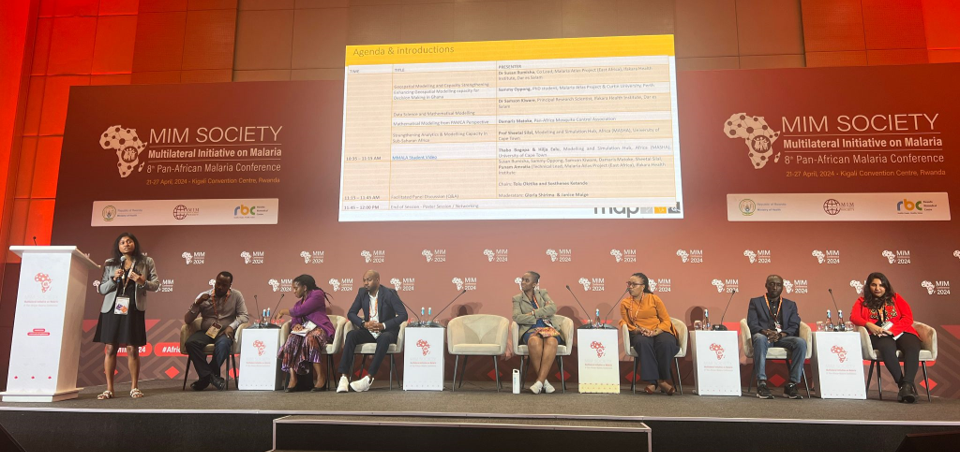Modelling in the land of a thousand hills

Analytical support to governments and partners can inform decision-making and malaria operations, as it quantifies potential outcomes and long-term impact. The presence of platforms for this collaborative knowledge-sharing is important for the growth of malaria modelling as a discipline. The Applied Malaria Modeling Network (AMMnet), a community of malaria modellers and data analysts, hosted their annual meeting in Kigali, Rwanda on the 18th and 19th of April 2024. Across the two days, students, professionals, and experts had the opportunity to exchange ideas, share research outputs through poster and oral presentations, as well as receive training on areas related to malaria analytics. Mr. Retselisitsoe Monyake delivered a training session on how researchers can leverage the R-Shiny package to visualise data and communicate modelling outputs through web interfaces. These provide an interactive and accessible platform for non-modellers to engage with modelling results.

Grant awardees of the Bill and Melinda Gates Foundation (BMGF) Grand Challenges consortia were also present, and their trainees were given the opportunity to present their ongoing work. On behalf of the Malaria Modelling and Analytics, Leaders in Africa (MMALA) programme, Thabo Bogopa presented a poster on the impact of mass drug administration on malaria transmission in the Okavango sub-district in Botswana. This forms part of a larger research study simulating different strategies of drug administration in areas of low transmission in Botswana.

Hilja Eelu gave an oral presentation on her work investigating a coordinated regional approach to malaria elimination using mathematical modelling by exploring scenarios that synchronise the timing and intensity of malaria control interventions among neighbouring Namibia, Angola, and Zambia. This is testament of the ongoing strengthening of malaria modelling capacity in Sub-Saharan Africa.

The AMMnet annual meeting was followed by the Multilateral Initiative on Malaria Conference (MIM) from the 21st-27th April 2024 in Kigali as well. Prof Sheetal Silal, MASHA Director, participated in the “Modelling for Malaria Decision Making in Africa: Enhanced Technical Support and Capacity Strengthening” symposium in collaboration with the Malaria Atlas Project, Ifakara Health Institute and the Pan-African Mosquito Control Association (PAMCA). She also contributed to a panel discussion on “Strengthening the Institutional Capacity and the Enabling Environment for Public Health Analytics in Africa'', hosted by World Health Organization & Harvard School of Public Health.

Opportunities such as the AMMnet annual meeting are critical to the development of emerging young modellers. Attendees gain insight into modelling approaches outside of their research groups, and sow the seeds for future collaboration. MASHA is excited to support more of our students throughout their research journey, as they present in Rwanda (the land of a thousand hills), and beyond!
